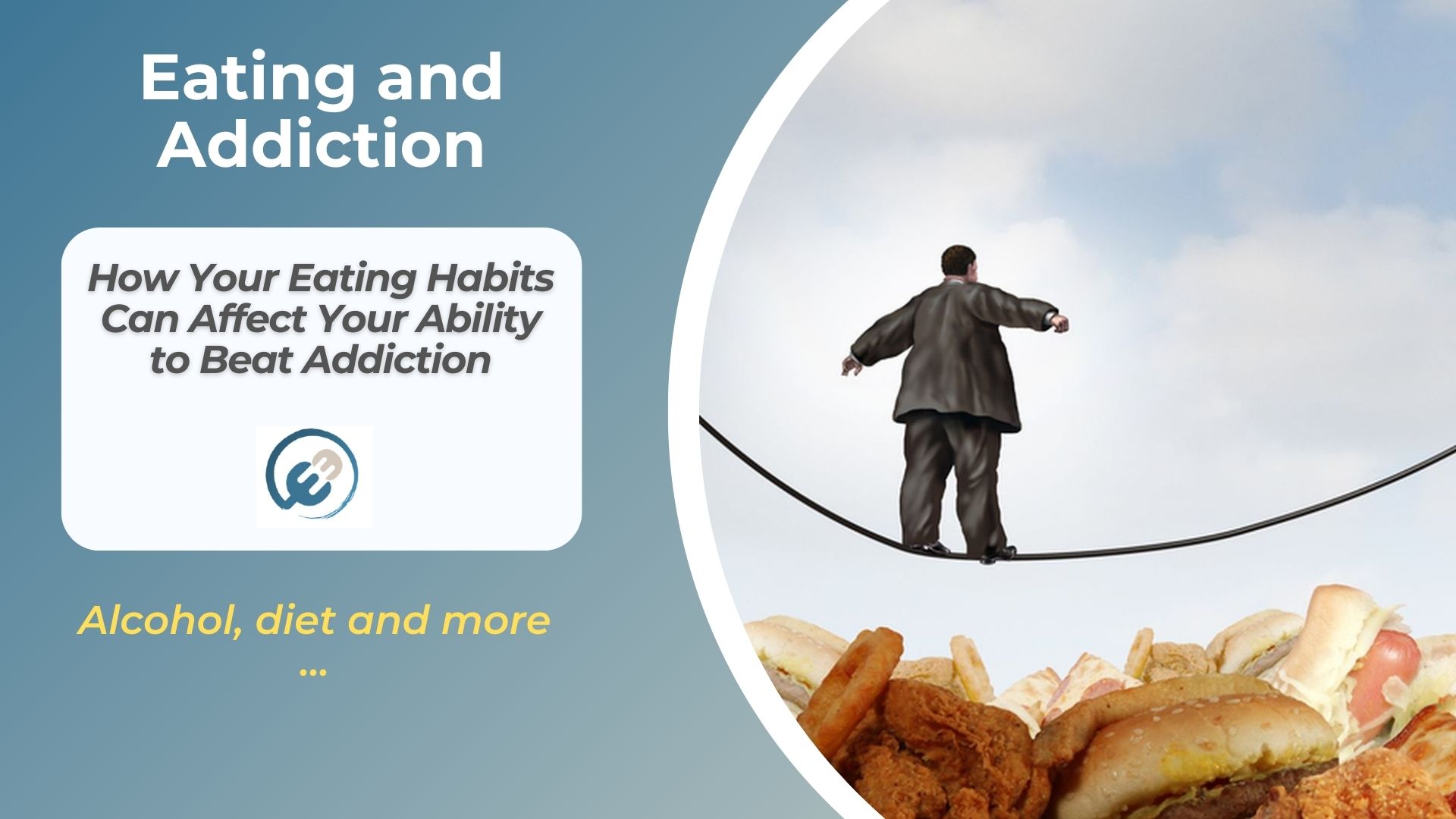Nutrition and a balanced diet are crucial to a person’s emotional and physical well-being, and this is especially true during recovery from addiction.
Understanding the importance of proper nutrition and how to include it in your recovery process can be especially useful for individuals attempting to kick an addiction to drugs or alcohol.
Eating habits can actually affect your ability to beat addiction!
Nutritional science examines the connections between what we eat and our physical and mental well-being, including how we grow, reproduce, and recover from sickness.
The truth is that heavy drug or alcohol use, along with a lack of proper nutrition, can cause severe physical stress. You may be causing a range of health problems, including malnutrition, vitamin deficiency, and electrolyte imbalances, which all impair its capacity to operate. Here’s how nutrition affects recovery.
The value of eating well during detox
When trying to beat an addiction, many people put their nutritional needs last, prioritizing the reduction or elimination of their drug use instead. Poor nutritional habits, however, can lead to increased food cravings and the chance of relapse; therefore, they should be encouraged as part of the withdrawal process and the continuing treatment plan.
Because of the way alcohol and other drugs affect the digestive system, they can cut off or severely slow the supply of nutrients to the brain. A well-functioning digestive system is essential for optimal brain health.
Those who enter withdrawal with a healthy digestive system and well-nourished brain will have fewer symptoms and a better likelihood of long-term sobriety.
Alcohol and diet
Alcohol abusers often neglect their health by not eating properly. When people’s primary focus shifts from maintaining a healthy lifestyle to locating and consuming alcohol, even previously healthy individuals are more likely to abandon their once-vigorous efforts to eat well.
Because of this, even if someone eats healthily and gets all the nutrients they need, alcohol hinders them from being effectively absorbed, creating a double nutritional issue.
Abuse of alcohol is well-known to lead to dangerously low levels of several nutrients, like Vitamin B9, Vitamin B1, and Folic acid. Anemia, which can occur from a deficiency in these minerals, manifests with symptoms like chills, fatigue, and frequent dizziness. It’s essential to make wise choices when it comes to food in recovery, as these nutrients will help combat withdrawal symptoms.
Additionally, the pancreas and the liver are two digestive organs that are severely harmed by alcoholism. In moderation, the liver breaks down alcohol to prevent it from circulating in the blood and damaging the digestive system. If the liver isn’t functioning properly due to excessive drinking, the alcohol will stay in the bloodstream longer and inflict more harm.
Drugs and diet
Stimulants
Stimulant addicts usually lose a considerable amount of weight. Anorexia and other eating problems are common among those who use these drugs. Users of stimulants can go for days on end without water or rest if they take their drug of choice.
Once the effects of the medicine wear off, they’ll feel hungry again and probably overeat. During recovery, patients need to learn to recognize their triggers and overcome them to improve their ability to beat addiction. Otherwise, continuing this kind of extreme eating behavior contributes to malnutrition.
Opioids
Opioids dull the body’s processes, making consumers feel drowsy. Even more so, opioids reduce metabolic rate and digestive speed. This implies that your body will poorly absorb the nutrients from the meals you eat. Constipation is a common symptom of impaired digestion.
The road to recovery
Addiction and overeating are two sides of the same coin. Both need to be addressed for optimal health, which is why connecting with expert care is so crucial.
As we’ve learned from our friends at Little Creek Recovery, meal planning, and nutritional balancing are just the tip of the iceberg when it comes to successful recovery. Dietary support while undergoing addiction treatment can be a game changer.
Cravings
Patients who’ve struggled with substance abuse might forget the feeling of hunger. They usually have cravings for unhealthy meals, such as sweet treats and fatty comfort foods. Emotional eating, or an unquenchable craving for meals that give them a favorable physiological high, is common among addicts.
If you’re in recovery and suddenly feel hungry, it’s important to recognize that emotion for what it is: hunger. If you’re trying to get more nutrients into your body while you heal, it’s crucial to avoid the foods you often eat when cravings strike.
Nutrition therapy
Patients in the detox process typically follow strict diet recommendations. As they go further in their recovery program and begin treatment, the beneficial impacts of their new, healthier diet will become more obvious. As we know, food affects mood, and healthy food equals a more positive overall feeling.
When patients have a plan for what they eat, they can recover much more quickly. More structure increases the likelihood of success in rebuilding.
There needs to be a reasonable amount of protein and carbohydrates in each meal. Fruits and vegetables must be part of every meal. There is more to nutrition therapy than making sure patients eat well while receiving care. Patients can learn the distinction between cravings and hunger thanks to the dietitians’ guidance.
In addition, patients are instructed on how to create personalized healthy meal plans, which provide them with the knowledge and skills necessary to plan, shop for, and make delicious, healthful meals in the comfort of their own homes. In this manner, individuals can take care of their dietary needs once they leave the rehabilitation facility.
Final words on how your eating habits can affect your ability to beat addiction
You may improve your ability to beat addiction with a well-planned and executed food and nutrition plan. It is important to replenish any nutrients lost due to abstinence from drugs and alcohol by eating well and taking supplements. Good luck!



